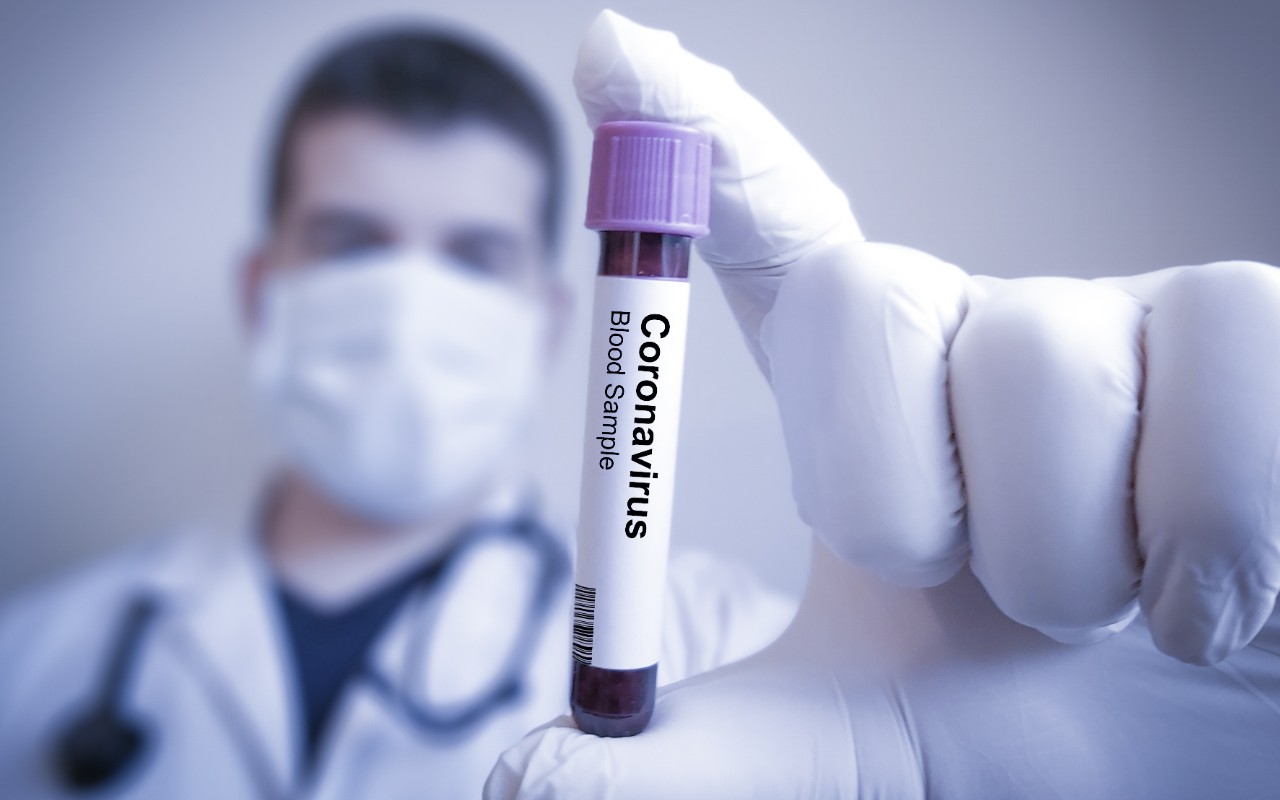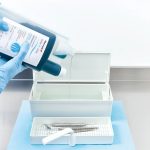
Coronaviruses are members of a large family of enveloped viruses that cause diseases of varying severity. Some varieties lead to nothing more serious than common cold while others cause severe respiratory conditions like SARS (Severe Acute Respiratory Syndrome) and MERS (Middle Eastern Respiratory Syndrome)[1].
The Novel Coronavirus (COVID-19) is a new variety, first identified in humans in the Chinese city of Wuhan in December 2019.
COVID-19 is a zoonotic virus and like its predecessors, SARS-CoV and MERS-CoV, has been transmitted to human beings from animals. At the moment it is not known which animal transmitted the virus to humans, but we know that pets are not responsible for the transmission of the virus.
Contagion can also occur person to person through contact with droplets of saliva from infected persons or through contact with contaminated surfaces. According to the Journal of Hospital Infection, the virus can survive for up to 9 days on inanimate surfaces[2].
The virus’ incubation period ranges from 2 to 14 days from the time of exposure[3].
The most common symptoms indicative of infection are:
- fever
- cough
- shortness of breath
- respiratory difficulties
In more serious cases, infection by COVID-19 can lead to pneumonia, severe respiratory syndrome, kidney failure and death[1].
Compared to SARS-CoV and MERS-CoV, COVID-19 seems to be proportionally less dangerous[4][5]. Unfortunately, the virus is spreading rapidly and the number of people infected is far higher than that affected by its predecessors and circa ten times the number infected by SARS. At the time of writing (25th February 2020), around 80,000 cases have been recorded and this figure is rising constantly[6].
No treatments for the Novel Coronavirus have been identified yet, so it is essential to adopt protocols to prevent and control infections based on specific measures.
The World Health Organisation recommends applying various preventative measures to avoid the transfer of infection[7]. These can be summarised as follows:
- wear face masks in the event of suspect symptoms to avoid spreading the virus;
- avoid close contact with persons showing symptoms of cough or fever;
- in case of cough, fever or respiratory difficulty, contact a doctor immediately or call the emergency number provided regionally or nationally;
- cover your mouth with a tissue or bent arm when coughing or sneezing, then dispose of the tissue immediately and wash your hands;
- wash your hands frequently with soap and water if they are visibly dirty; if they appear clean, an alcohol-based antiseptic soap is to be preferred;
- avoid contact between the hands and the eyes, nose or mouth unless you have washed your hands thoroughly;
- avoid contact with inanimate surfaces unless you have washed your hands thoroughly;
- disinfect inanimate surfaces using products at least with a “limited virucidal” spectrum, or products effective against enveloped viruses like Coronavirus[8].
In the end, the American Dental Association created a specific handout for dental clinics, where it reports the following guidelines[9]:
- identify and isolate patients with severe respiratory symptoms;
- provide patients in the waiting room showing mild symptoms (coughing or sneezing) with surgical masks and disposable tissues, with no-touch receptacles to throw the used tissues;
- the clinic personnel in contact with patients should wear disposable masks, gloves, gowns and goggles to avoid a potential contagion;
- the clinic personnel and the patients should perform hand hygiene with soap and water or with an alcoholic solution after the possible contact with respiratory secretions or contaminated surfaces;
- it is important to follow strictly the routine disinfection protocols in the clinic.
For the disinfection of surfaces we advise NOT TO USE “homemade” solutions, but to trust only products certified according to the European norm EN 14476 and/or the German norm DVV/RKI, which make sure that the product has been tested and is effective against the specified types of viruses.
Non-certified products and “homemade” solutions are very dangerous, because their effectiveness against microorganisms is not tested: they also risk empowering them and make them immune to disinfection protocols.
Zhermack offers a wide range of products for disinfecting surfaces and for other applications effective against enveloped viruses, including COVID-19. Our Zeta Hygiene range has been providing effective disinfection for over ten years, and has been tested according to the latest European standards to ensure the safety of professionals.
For further information, click here and discover our complete range.
Sources:
[1] World Health Organization (WHO), https://www.who.int/health-topics/coronavirus
[2]Kampf G, Todt D, Pfaender S, Steinmann E, Persistence of coronaviruses on inanimate surfaces and its inactivation with biocidal agents, Journal of Hospital Infection, https://doi.org/10.1016/j.jhin.2020.01.022
[3] World Health Organization (WHO), https://www.who.int/news-room/q-a-detail/q-a-coronaviruses
[4] Smith R., Responding to global infectious disease outbreaks: Lessons from SARS on the role of risk perception, communication and management https://doi.org/10.1016/j.socscimed.2006.08.004
[5] World Health Organization (WHO), https://www.who.int/csr/don/31-january-2020-mers-united-arab-emirates/en/
[6] World Health Organization (WHO), https://www.who.int/emergencies/diseases/novel-coronavirus-2019/situation-reports
[7]World Health Organization (WHO): Infection prevention and control during health care when novel coronavirus (nCoV) infection is suspected. Interim guidance. 2020. WHO/2019-nCoV/IPC/v2020.
[8] World Health Organization (WHO), https://www.who.int/news-room/q-a-detail/q-a-on-infection-prevention-and-control-for-health-care-workers-caring-for-patients-with-suspected-or-confirmed-2019-ncov
[9] American Dental Association (ADA): Infectious Diseases: 2019 Novel Coronavirus. https://success.ada.org/en/practice-management/patients/infectious-diseases-2019-novel-coronavirus?_ga=2.153538490.386659501.1582618359-1502473633.1575562435


 Zhermack SpA has been one of the most important producers and international distributors of alginates, gypsums and silicone compounds for the dental sector for over 40 years. It has also developed solutions for the industrial and wellbeing sectors.
Zhermack SpA - Via Bovazecchino, 100 - 45021 Badia Polesine (RO), Italy.
Zhermack SpA has been one of the most important producers and international distributors of alginates, gypsums and silicone compounds for the dental sector for over 40 years. It has also developed solutions for the industrial and wellbeing sectors.
Zhermack SpA - Via Bovazecchino, 100 - 45021 Badia Polesine (RO), Italy.


